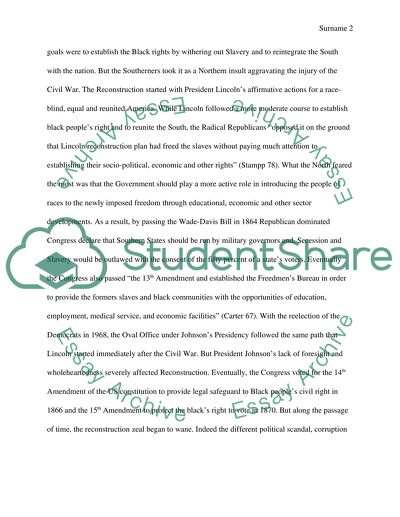Cite this document
(“Impacts of black codes,Jim Crow Laws and segregation on african Essay”, n.d.)
Retrieved from https://studentshare.org/history/1416544-impacts-of-black-codesjim-crow-laws-and-segregation-on-african-americans-in-the-united-states
Retrieved from https://studentshare.org/history/1416544-impacts-of-black-codesjim-crow-laws-and-segregation-on-african-americans-in-the-united-states
(Impacts of Black codes,Jim Crow Laws and Segregation on African Essay)
https://studentshare.org/history/1416544-impacts-of-black-codesjim-crow-laws-and-segregation-on-african-americans-in-the-united-states.
https://studentshare.org/history/1416544-impacts-of-black-codesjim-crow-laws-and-segregation-on-african-americans-in-the-united-states.
“Impacts of Black codes,Jim Crow Laws and Segregation on African Essay”, n.d. https://studentshare.org/history/1416544-impacts-of-black-codesjim-crow-laws-and-segregation-on-african-americans-in-the-united-states.


